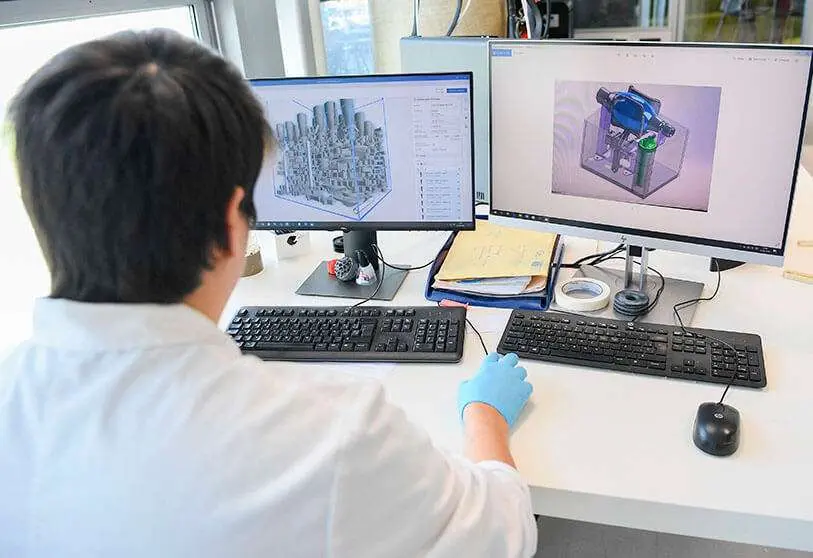Technologies, health and democracies

The Official State Bulletin of 28 March reports that the government “has entrusted the Secretariat of State for Digitalisation and Artificial Intelligence with the urgent development of a computer application to support health management”, specifically for the self-assessment of users on their state of health, as well as a study on mobility based on data analysis and the creation of a central coordination point for the assessment of results. Almost at the same time, a report published yesterday, 1 April, by Bloomberg, highlighted some partial conclusions of a secret American report that warns of the manipulation of the figures on victims offered by the Chinese Government. The analysis of data and the use of digital technologies and artificial intelligence to combat the spread of the virus and prepare society for the next phase of progressive normalization and monitoring of the disease is now a useful and inexorable tool for tackling the crisis. But the demand for transparency in results is an equally inexorable demand that democratic societies must bear in mind in this time of uncertainty and exceptionality.
Democracies will be strengthened to the extent that data and the actions of policy makers can be known and appreciated by public opinion. South Korean sociologist Byung Chu Han warned in a recent article in El País about China's intention to sell its “digital police state”. In a world open to the influences of the great powers and interests, democratic principles and freedoms, including those of information and expression, are the tools to fight disinformation and manipulation.
In any case, the success of different Asian countries in the use of digital tools to fight the pandemic, have to move European governments and civil society to implement similar models or adapt Asian good practices. In its latest issue, The Economist publishes a report on some of the initiatives launched in Asia, many of which are known to the international public. Digital solutions to document and know the movements of people; creation of monitoring models to determine the spread of the virus and possible contagion; tools to measure the contacts produced between infected people. Naturally, the tests, those that are reliable, to evaluate the state of health of the population, as the World Health Organization insists. However, the report doesn't refer exclusively to the Chinese model, but extends it to the initiatives that have been developed in other Asian countries, democracies in this case, such as Taiwan or South Korea.
The tools used have proved beneficial in many cases and in different countries. And they show a significant amount of options ranging from the use of Whatsapp in Hong Kong, to Apps in South Korea, to information from mobile devices in Taiwan. And others in China itself, where the Health Check App centralizes and provides valuable information to control and overcome the spread of the virus in the huge country. But the unresolved tension between the use of data and private information and the deterioration of freedoms, or the possible manipulation of those as highlighted by Bloomberg, highlights, now that Spain and Europe are facing the challenge of digitization for social and economic recovery, the need to establish control measures and transparency in the use of these results. The opposition, the media and scientists must be part of this control, without prejudice to the essential centralization of strategies.
Beth Duff Brown highlights in a recent article at Stanford the Taiwanese model of transparency, big data and centralization of management. However, Spain and Europe, and more extensively Western companies, should be able to develop reliable models and equally reliable institutions for the implementation of this shock policy. Borja Rodríguez, Professor of Biomedical Engineering at the European University, and Alberto Sols, Dean of the School of Architecture, Engineering and Design, agree that Spanish companies are capable of developing reliable models for the analysis of data on the disease, which could be based on the anonymity of citizens to guarantee some of the rights that are being questioned, in this case, privacy. Enrique Puertas, also a professor and data specialist, agrees on the “muscle” of national and European companies and applications, but points out the traditional deficit in the accumulation of data.
This isn't the only deficit we are facing and that we must correct. As stated in January in the Brookings Institute report ‘The case for AI transparecy requirements’, directed by Alex Engler, “artificial Intelligence generates propaganda” and some contents may mean the expansion of messages and thought structures with consequences on the population and public opinion, so the centralized bodies to develop the strategy and the executors must foresee possible dysfunctions in the models. Moreover, we cannot dream that the digital solution is definitive and global. Half of the population of humanity doesn't have access to the Internet, which opens an unbridgeable gap between countries with capacities and countries in the process of technological development. The time for balance and digital liberalism is the same. It’s the time for multilateral and common progress from this horrifying global crisis. Democracies are in a position to lead it.

